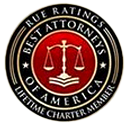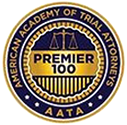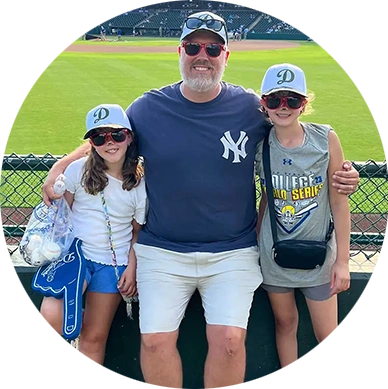You may be told that you are able to return to work. However, your physical condition may prevent you from doing the exact work that you did before your injury.
You may still have to go back to work under light-duty restrictions, based on your employer’s wishes and what they have available. If you do not return to work, you could risk forfeiting your workers’ compensation benefits.
Still, you may have issues because you cannot perform the tasks that you are told. In that case, you may be able to challenge the termination of benefits that result from your refusal to perform the light-duty work.
The Philadelphia workers’ comp attorneys at Gibbons & Crichton, Personal Injury and Accident Lawyers are here to fight for you when your workers’ compensation benefits are jeopardized. Contact us for help today.
You Can Be Told to Return to Work After You Reach MMI
At some point in your workers’ compensation case, you may reach the point of maximum medical improvement. For purposes of your case, MMI is defined as the point where your condition may not improve more with further medical treatment.
Once you reach MMI, an independent medical examiner may reach the conclusion that you are ready to return to work. Although you can certainly fight their opinion if you believe them to be wrong, you may have no choice but to return to work.
However, you may still not be in the condition to perform the full duties that you did before your injury. For example, if you suffered a disc injury in your back, you may not be able to do any heavy lifting.
Nonetheless, you may not be incapacitated enough that you cannot work. There may be an opportunity for you to do other work for your employer.
Light-Duty Work Should Be Less Physically Taxing
Light-duty work encompasses tasks that do not have the same level of physical strain as your job entailed before your injury. The classic example of light-duty is office-related tasks, where you are doing clerical work.
Many employers often do not have this type of work available to you. Or, you may not have the training necessary to do some types of light-duty work. Nevertheless, the employer could determine that you may be of value to them in other areas of the workplace.
Examples of Light-Duty Work
Some examples of light-duty work that you could perform include:
- Filing paperwork
- Entering information into the computer systems
- Monitoring security cameras
- Sitting at a front desk at a greeter
- Conducting training sessions for employees
- Conducting inspections of the plant
Any type of sedentary work that does not require physical labor could qualify as light-duty work. There may be some types of work that are within the scope of your training and experience. The employer could use your services in different areas.
You May Still Be Paid Benefits When You Are Working
Light-duty work may not pay what you were earning before your injury. You may have had specific job skills that merited a higher rate of compensation. The good news is that you will not be forced to entirely forgo your workers’ compensation benefits because your employer has offered you light-duty work.
Your benefits will still replace some of your loss of income from the light-duty work. Generally, you would receive two-thirds of the loss of income that you would experience with the new light-duty work. However, if the combination of your benefits and light-duty work means that you will earn more, you may lose your benefits.
You may need to perform light-duty work until you are fully healed. At that point, you may return to your prior job, and your workers’ compensation benefits will be terminated. Your employer can still terminate you when you are performing light-duty work when you cannot perform these duties, or they no longer have this type of work available for you.
In Pennsylvania, Your Employer Does Not Have to Give You Light Duty Work
On the flip side, your employer does not necessarily have to accommodate your request for light-duty work until you can return to your previous position. They may not have the type of work available that you need in light of your physical restrictions.
One of your main concerns is that your employer may not hold your job for you until you get back. They are under no obligation to keep your job for you once you take off what is allowed to you under federal law to deal with your injuries. Although the employer cannot retaliate against you for filing a claim, they may find that they no longer have a role for you.
When you are deemed able to perform light-duty work, you do not necessarily have much of a choice. If you refuse the direction to return to light-duty work, you could be placing your eligibility for workers’ compensation benefits in doubt.
If you refuse light-duty work, your employer may file a form that states you will not perform these tasks. Then, you could lose your benefits. Your employer does not necessarily want you to keep receiving workers’ compensation benefits because it could raise their own insurance premiums.
You Can Contest What Is Considered Light Duty Work
However, your employer cannot simply pick any task and call it “light-duty work.” What they are proposing may be outside of the constraints that you have.
Their light-duty work must meet the restrictions laid out by the doctor. For instance, you may not be able to sit for extended periods of time with a serious back injury. Even if you are not lifting weights, you may not be able to remain in a sedentary position because it could be painful. You may need to fight to show why you cannot do what is being asked of you, so you can maintain your full workers’ compensation benefits. Otherwise, your weekly payments could be at risk.
What is considered light-duty work may be a combination of the type of task and the hours of work. If you are still not fully recovered, it may be unreasonable to think that you can work a full-time schedule, no matter what you are doing. You could also be easily fatigued and need a work schedule that offers you enough rest, something that your employer may not be willing to provide.
You Can Appeal When Your Benefits Are Ended
In Pennsylvania, you have the ability to file a workers’ compensation appeal when your benefits have been terminated. Your appeal could center on the fact that you were not actually ready to return to work, and the employer selected by your physician was wrong.
Alternatively, you could claim that these light-duty tasks were not suited for your physical condition. An Administrative Law Judge would listen to your arguments and issue an objective decision about whether your benefits can really be terminated. They would be reinstated if your employer was wrong.
If you believe that you have been wrongly asked to return to light-duty work, you should contact an experienced workers’ compensation attorney to review your case. Your lawyer will help you determine whether there are grounds for an appeal.
Contact a Philadelphia Workers’ Compensation Attorney Today
If you have a difficult workers’ compensation claim, or you are involved in any disputes pertaining to your coverage or benefits, you need to contact an experienced lawyer. Gibbons & Crichton, Personal Injury and Accident Lawyers represents injured workers in the claims process, fighting for their rights and compensation at all times.
Call us today at 215-274-0173 or send us a message online to discuss your case. We offer free initial consultations to prospective clients.














